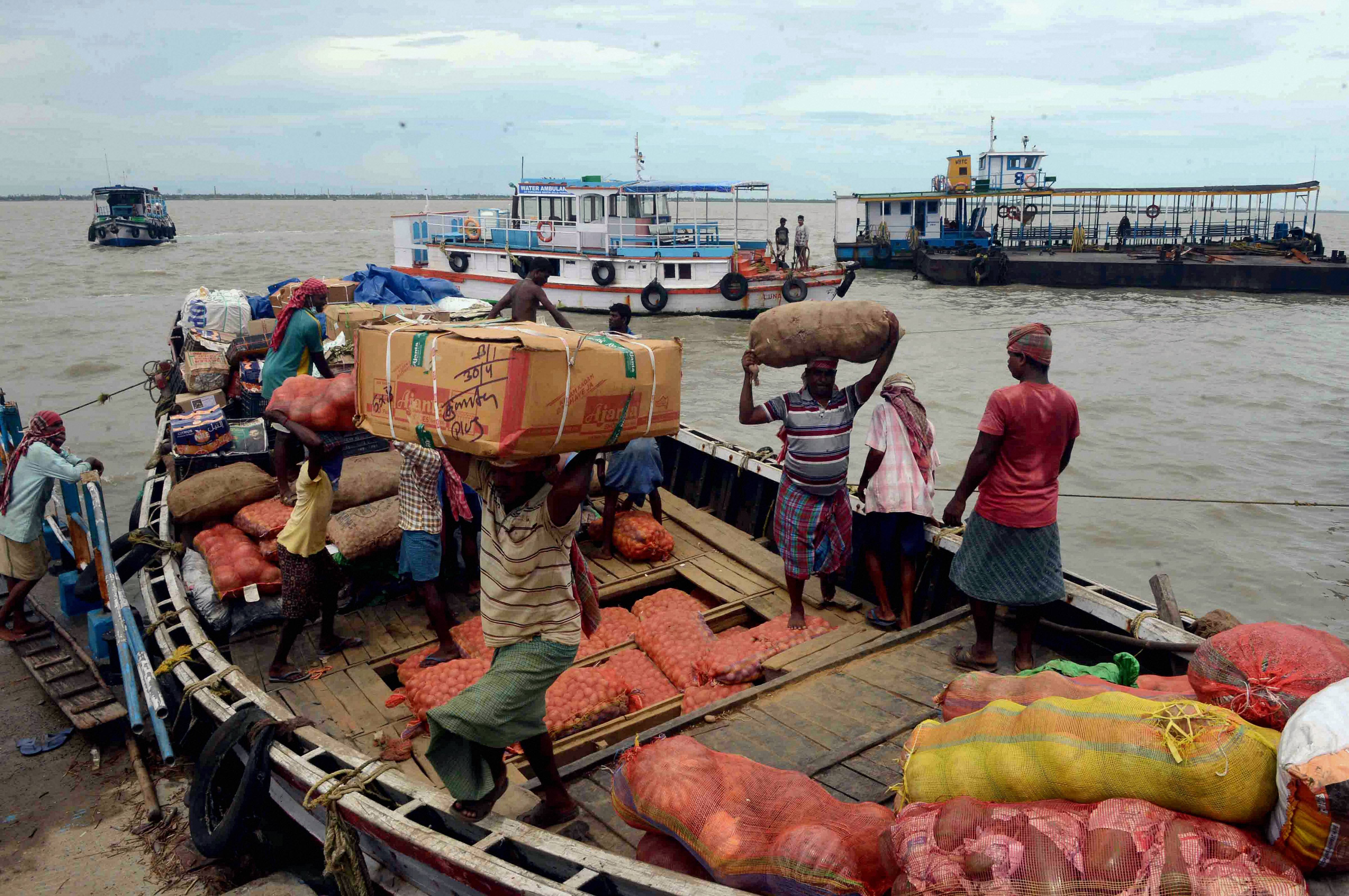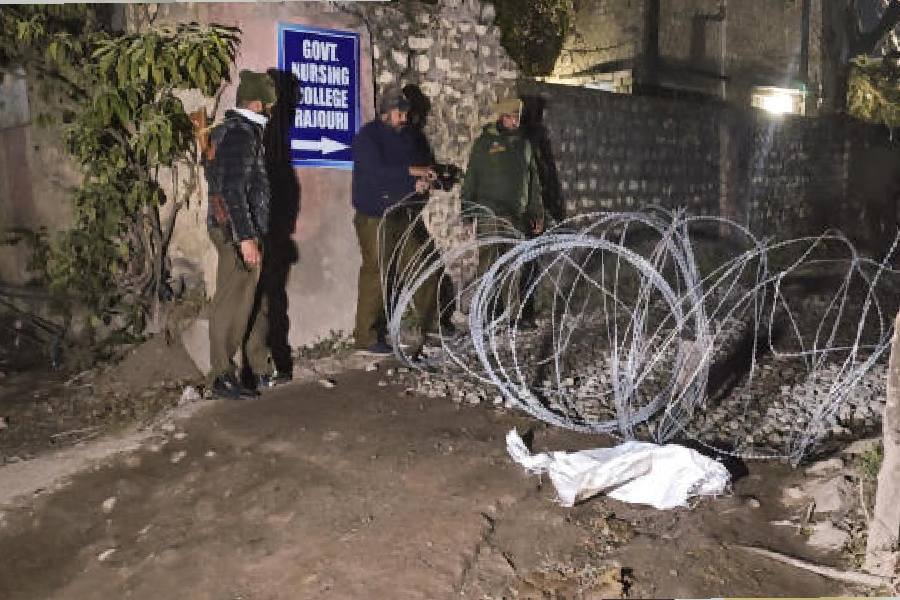Cases climb to 2,86,579, death toll 8,102
The death toll due to Covid-19 rose to 8,102 and the number of cases climbed to 2,86,579 in the country after it registered the highest single-day spike of 357 fatalities and 9,996 cases till Thursday 8am, according to the Union health ministry data.
The number of recoveries remained more than the active novel coronavirus cases for the second consecutive day.
The number of active cases stands at 1,37,448 while 1,41,028 people have recovered and one patient has migrated to another country, as per the data.
'Thus, around 49.21 per cent patients have recovered so far,' an official said.
The total number of confirmed cases include foreigners.
Of the 357 new deaths reported till Thursday morning, 149 were in Maharashtra, 79 in Delhi, 34 in Gujarat, 20 in Uttar Pradesh, 19 in Tamil Nadu, 17 in West Bengal, eight in Telangana, seven each in Madhya Pradesh and Haryana, four in Rajasthan, three each in Jammu and Kashmir and Karnataka, two each in Kerala and Uttarakhand, one each in Andhra Pradesh, Bihar and Himachal Pradesh.
Out of the total 8,102 fatalities, Maharashtra tops the tally with 3,438 deaths followed by Gujarat with 1,347 deaths, Delhi with 984, Madhya Pradesh with 427, West Bengal with 432, Tamil Nadu with 326, Uttar Pradesh with 321, Rajasthan with 259 and Telangana with 156 deaths.
The death toll reached 78 in Andhra Pradesh, 69 in Karnataka and 55 in Punjab. Jammu and Kashmir has reported 51 fatalities due to the coronavirus disease, while 52 deaths have been reported from Haryana, 33 from Bihar, 18 from Kerala, 15 from Uttarakhand, nine from Odisha and eight from Jharkhand.
Chhattisgarh and Himachal Pradesh have registered six Covid-19 fatalities each, Chandigarh has five while Assam has recorded four deaths so far. Meghalaya, Tripura and Ladakh have reported one Covid-19 fatality each, according to the ministry's data.
More than 70 per cent of the deaths are due to comorbidities, the ministry's website stated.
Resident doctors test positive
A 42-year-old woman from the district who had tested positive for coronavirus died at a hospital in Meerut, an official said on Thursday.
According to subdivisional magistrate Inderkant Dwivedi, the woman, a resident of Khatoli town, was ill for a long time and had tested positive for COVID-19. She died at Subharti Medical Hospital in Meerut Wednesday evening.
Meanwhile, a hostel for resident doctors at the Muzaffarnagar Medical College in Begrajpur in the district has been sealed after six of them tested positive for coronavirus and were shifted to a Covid-care hospital, the official said.
The remaining over 70 resident doctors have been quarantined in their hostel rooms at the medical college, he said.
NHRC team to visit LNJP Hospital for inspection
A team of the National Humans Rights Commission (NHRC), led by its member Jyotika Kalra, is slated to visit the LNJP Hospital on Thursday for an on-spot inspection in the wake of allegations of mismanagement in handling the Covid-19 situation in Delhi.
Lok Naik Jai Prakash (LNJP) Hospital is a dedicated Covid-19 facility under the Delhi government.
The panel had sent notices to the health ministry and the Delhi government on Wednesday over the pandemic situation in the national capital, and asked them to submit a report in 10 days on heathcare facilities and related issues.
'A team of the National Human Rights Commission, led by its member Jyotika Kalra will visit LNJP Hospital in Delhi around 3pm today for an on-spot inspection of the facilities in the wake of allegations that there is mismanagement and coronavirus patients are being denied admission and treatment,' a senior official of the NHRC said.
India's first sero-survey on Covid-19 spread has found that lockdown and containment measures were successful in preventing a rapid rise in infections, but a large proportion of the population still remains susceptible, the government said on Thursday, asserting that the country is not in the community transmission stage.
The sero-survey has two parts, the first being, estimate fraction of population that has been infected with SARS-CoV-2 in general population and the second being, estimate fraction of population that has been infected with the coronavirus in containment zones of hotspot cities, Indian Council of Medical Research (ICMR) Director General Balram Bhargava said at a media briefing.
The first part has been completed and the second is ongoing, he said, adding that the survey was launched in May by the ICMR in collaboration with state health departments, the National Centre for Disease Control (NCDC) and the World Health Organisation (WHO).
Bhargava said the study involves surveying of a total of 83 districts with 26,400 people enrolling for it.
The figure that was shared with the media stated that data from 65 districts has been compiled till now.
The sero-survey has found that 0.73 per cent of the population in the districts surveyed had evidence of past exposure to SARS-CoV-2 , Bhargava said.
Lockdown and containment (measures) have been successful in keeping it low and preventing rapid spread, he said, citing the survey.
However, it means that a large proportion of the population is still susceptible and risk is higher in urban areas (1.09 times) and urban slums (1.89 times) than rural areas, Bhargava said
It found that infection fatality rate is very low at 0.08 per cent and infection in containment zones were found to be high with significant variations, but the survey is still ongoing, he said.
Since, a large proportion of the population is susceptible and infection can spread, non-pharmacological interventions such as physical distancing, use of face mask or cover, hand hygiene, cough etiquette must be followed strictly, Bhargava said.
Urban slums are highly vulnerable for the spread of the infection and local lockdown measures need to continue as already advised by the government, he said.
Elderly, chronic morbidities, pregnant women and children less 10 years of age need to be protected as they fall in the hig-risk category susceptible to Covid-19, he said.
Efforts to limit the scale and spread of the disease will have to be continued by strong implementation of containment strategies by states. The states cannot lower their guard and need to keep on implementing effective surveillance and containment strategies, Bhargava said.
'India is not in community transmission. We have to continue with our strategy of testing, tracing, tracking, quarantine and containment measures; we should not give up our guard on these, he said.











